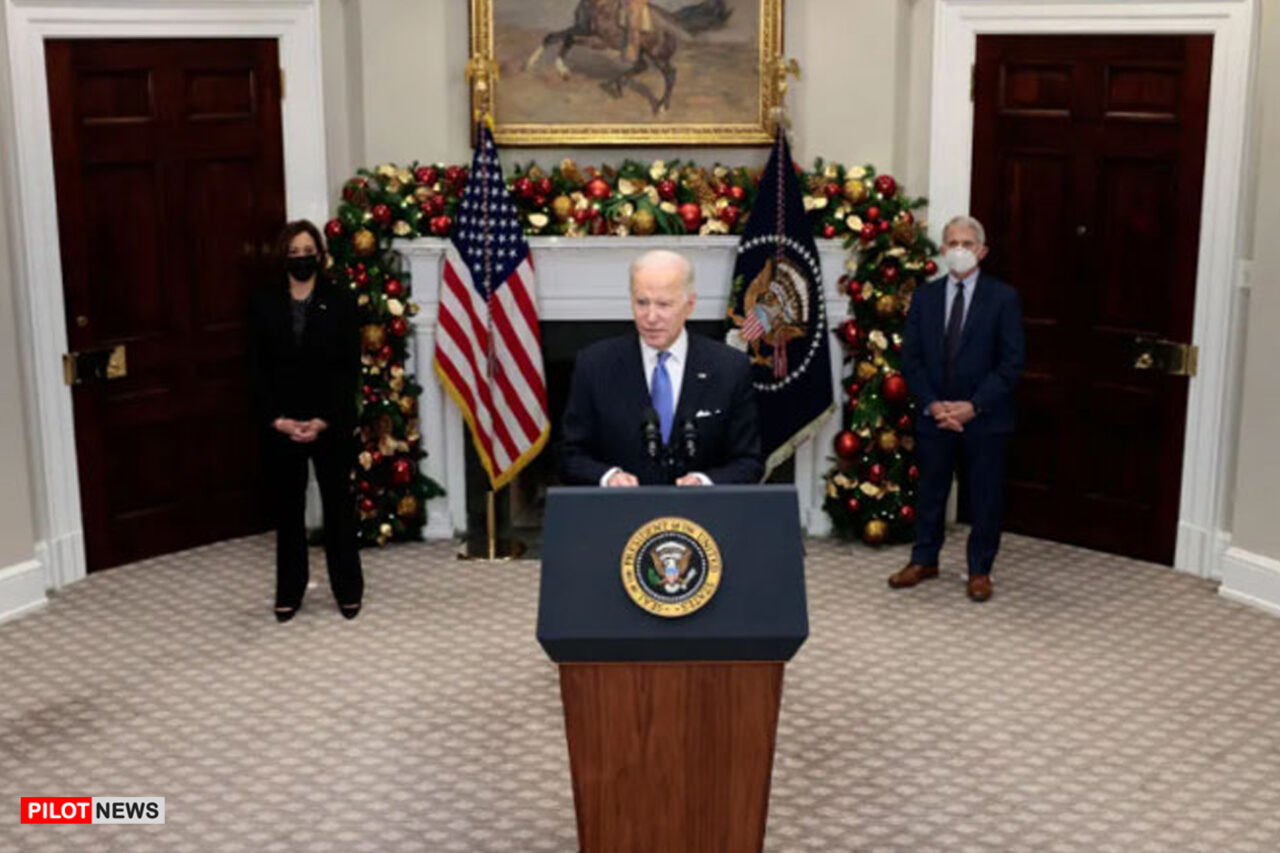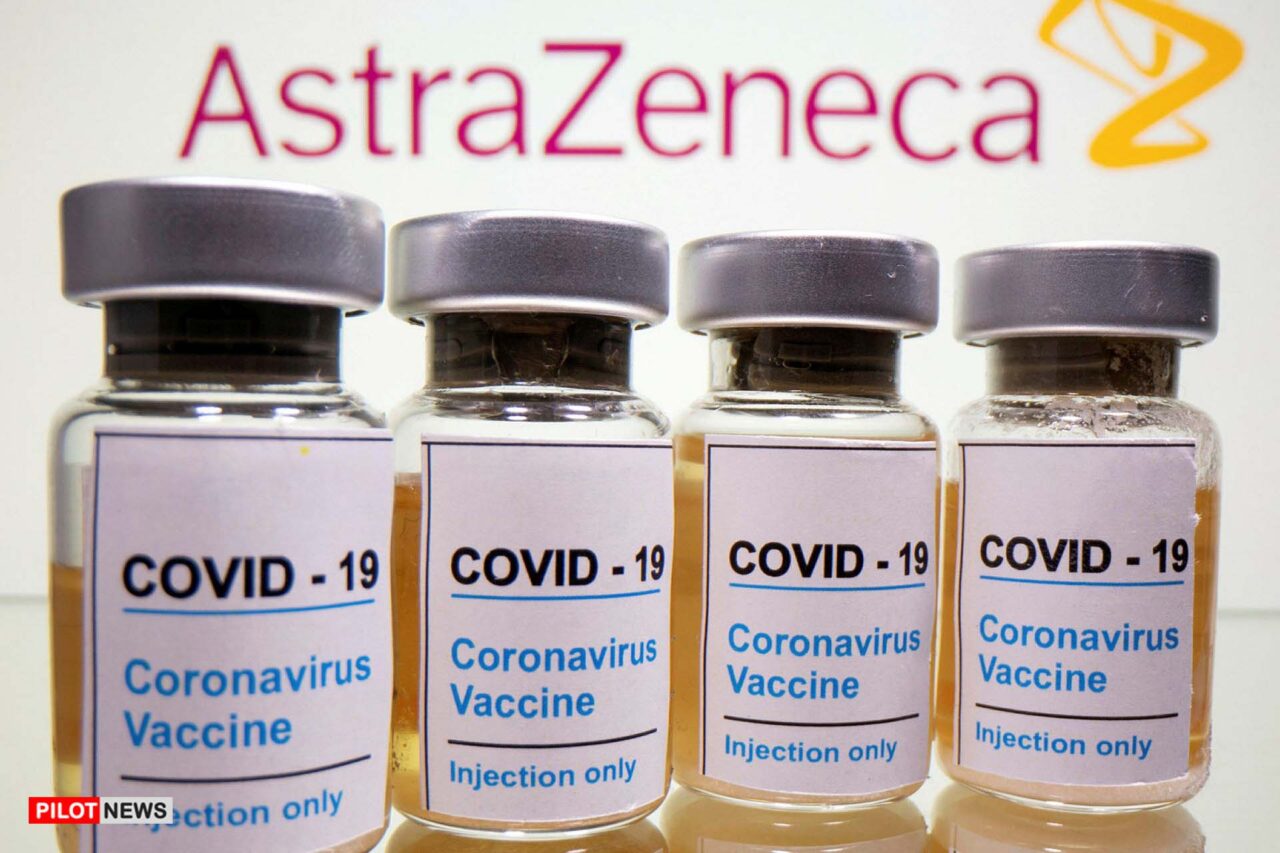COVOD-19
Omicron Travel Bans Will Hinder U.S. Africa Policy

- OPINION: What Has Quality Got to Do With Soludo’s Made-in-Anambra Brands - February 5, 2022
- Buhari Appoints Olatunji NDPB Pioneer National Commissioner - February 5, 2022
- Why ‘Side-chicks’ Remain in Business – Benin Residents - February 5, 2022
COVOD-19
COVID-19 Impact: Enugu Govt., Traditional Rulers Partners With AUDA-NEPAD To Empower 2,000 Farmers

Rebuilding the nation from the debilitating effect of the Covid-19 pandemic is paramount as the Enugu State Government in partnership with the African Union Development Agency-New Partnership for African Development, AUDA-NEPAD seeks to empower smallholder farmers in the state to boost food production to cushion the effects of the COVID-19 pandemic.
The administration of #Governor Ifeanyi #Ugwuanyi of #Enugu State has taken measures in furtherance of its efforts to cushion the devastating impact of the COVID-19 pandemic on the people and the economy of the state.
Consequently, the Enugu State office of the African Union Development Agency-New Partnership for African Development (AUDA-NEPAD), yesterday, held an interactive meeting with stakeholders in the state (Traditional Rulers of autonomous communities and Presidents General of town unions) on the agency’s agricultural project aimed at empowering smallholder farmers and boosting food production to cushion the effects of the COVID-19 pandemic.
Addressing the stakeholders, the Enugu State Commissioner for Special Duties and State Co-ordinator/Focal Person in charge of AUDA/NEPAD, Enugu Office, Hon. Mrs. Mabel Agbo disclosed that AUDA-NEPAD Continental Office in collaboration with some International Agencies took bold measures to cushion the impact of COVID-19 on the citizens by initiating the project, entitled “Innovative Strengthening of Smallholder Farmers Capabilities Towards Productive Land Restoration Amid COVID-19 in Nigeria”.
Mrs. Agbo said that “this project as the title connotes is aimed at empowering smallholder farmers in our different communities in all agriculture value chains and segments (crops and livestock) to boost their capacity for food production, especially in the aftermath of the devastating impact of COVID-19 on our economy”.
She stressed that “to reduce the negative impact of this pandemic, we must step up efforts to enhance the capacity of our farmers to provide food for the wellbeing of our citizens”.
Revealing that the African Union (AU) has set the ball rolling by providing the required money for the realization of the agricultural project, the AUDA-NEPAD State Coordinator pointed out that “our goal-oriented Governor of Enugu State, Rt. Hon. Ifeanyi Ugwuanyi, was equally not found wanting as he readily approved the provision of the counterpart fund required for this project”.
Mrs. Agbo, therefore, urged the Traditional Rulers of the autonomous communities in Enugu State and the Presidents General of Town Unions to ensure that lands are made available for use by the potential farmers, who she said are eager to embrace the challenges of cluster farming but do not have the requisite land space for the agricultural project in their various communities.
“As the custodians of your ancestral lands, we expect you to help by disentangling those cultivable lands under your jurisdiction that are not presently in use.
“We are also aware that in some communities, the Green Lands earlier earmarked/acquired by the government for agriculture have been encroached by land grabbers.
“We enjoin you to help us identify these lands and take necessary steps to free them for use in this project”.
Also speaking, the representative of the State Commissioner for Agriculture, Mr. Afam Ngene, described the project as laudable, commending the AUDA-NEPAD for the initiative.
The Commissioner equally lauded Gov. Ugwuanyi for ensuring that the programme reaches all the nooks and crannies of Enugu State, for full actualization of the objectives in the interest of the farmers in particular and the state in general.
He hinted that the project has a ten years duration that will outlive the present administration both at the state and federal levels.
In their separate contributions, the Deputy Chairman of Enugu State Council of Traditional Rulers, HRH Igwe Barr. R.S.N. Eze; Igwe P.U. Agbo; Igwe Engr. Okey Ogbodo; Igwe Greg Ugwu; Igwe H.I. Eze; the Coordinating Chairman of Presidents General (PGs) in Enugu State, Barr. Paulinus Eze, and other PGs, thanked Gov. Ugwuanyi for attracting the international project to the state and promised to consult widely with their communities for the realization of the all-important programme.
- OPINION: What Has Quality Got to Do With Soludo’s Made-in-Anambra Brands - February 5, 2022
- Buhari Appoints Olatunji NDPB Pioneer National Commissioner - February 5, 2022
- Why ‘Side-chicks’ Remain in Business – Benin Residents - February 5, 2022
Africa
Flights From 12 African Countries To United Arab Emirates Resume on January 29

The National Emergency and Crisis Management Authority (NCEMA) of the United Arab Emirates (UAE) revealed in a Twitter update that passenger flights from Nigeria and 11 other African countries will resume from Saturday, January 29.
Other affected countries are Ethiopia, Tanzania, Lesotho, Eswatini, Namibia, Zimbabwe, Mozambique, South Africa, Botswana, and the Republic of Congo.
It added that entry procedures have been updated for flights originating from Ghana, Rwanda, and Uganda.
Travel restrictions were put in place by the Arab country in December last year, over the emergence of the Omicron variant of COVID-19.
“From January 29, entry into the UAE for arrivals from Kenya, Tanzania, Ethiopia, Nigeria, the Republic of the Congo, the Republic of South Africa, Botswana, Eswatini, Lesotho, Mozambique, Namibia and Zimbabwe is allowed again.”
“Passengers arriving from the three countries must have a negative COVID-19 test which was obtained within 48 hours of departure from approved labs in their respective countries,” the tweet read.
The UAE authority also said the passengers must undergo a Rapid PCR test at the airports of departure.
On arrival in the UAE, they will be subjected to another PCR test
- OPINION: What Has Quality Got to Do With Soludo’s Made-in-Anambra Brands - February 5, 2022
- Buhari Appoints Olatunji NDPB Pioneer National Commissioner - February 5, 2022
- Why ‘Side-chicks’ Remain in Business – Benin Residents - February 5, 2022
COVOD-19
Over 14 million eligible Nigerians Received First Dose Of COVID-19 Vaccine

As of the 25th of this month, over 14 million eligible persons in Nigeria have received the first dose of COVID-19 vaccine in the country while over 5 million eligible Nigerians had been fully vaccinated.
The Executive Director of the National Primary Health Care Development Agency, Dr. Faisal Shuaib, stated this in Abuja during a media briefing on the Progress of COVID-19 vaccination in the country.
He also identified the Federal Capital Territory, Nasarawa, Jigawa, Ogun, and Kwara states as the top 5 performing states on COVID-19 vaccine uptake.
Dr. Shuaib however advocated State Governors support especially those on low performance to be charged with the responsibility of ensuring that the populace within their constituencies was duly vaccinated.
He said Nigeria has not recorded any death arising from Covid Vaccine since the commencement of the exercise in March last year.
Dr. Shuaib also said childhood immunization and other Primary Health Care services will be integrated into the mass COVID-19 campaign.
He said alongside the COVID-19 vaccines, childhood vaccines would also be available at COVID-19 vaccination sites to prevent any neglect in other health care services or even have outbreaks of childhood vaccine-preventable diseases at hand.
- OPINION: What Has Quality Got to Do With Soludo’s Made-in-Anambra Brands - February 5, 2022
- Buhari Appoints Olatunji NDPB Pioneer National Commissioner - February 5, 2022
- Why ‘Side-chicks’ Remain in Business – Benin Residents - February 5, 2022
-

 Column1 week ago
Column1 week agoNavigating Bias and Ethics in AI-Powered Cybersecurity: The BRACE Framework Approach
-

 News2 weeks ago
News2 weeks agoTrump trial update: Trump rebuked by judge for speaking during jury selection — and 7 jurors are seated
-

 Lifestyle2 weeks ago
Lifestyle2 weeks agoBody of O.J. Simpson to be cremated this week; brain will not be studied for CTE
-

 Education2 weeks ago
Education2 weeks ago11 Communication Students Awarded Scholarships at TSU’s Commweek
-

 Africa2 weeks ago
Africa2 weeks agoDonors raise more than 2 billion euros for Sudan aid a year into war
-

 Africa2 weeks ago
Africa2 weeks agoSA users of Starlink will be cut off at the end of the month
-

 News2 weeks ago
News2 weeks agoNigeria: chibok abduction anniversary spurs demands for justice
-

 News2 weeks ago
News2 weeks agoNigeria suspends permit of 3 private jet operators










